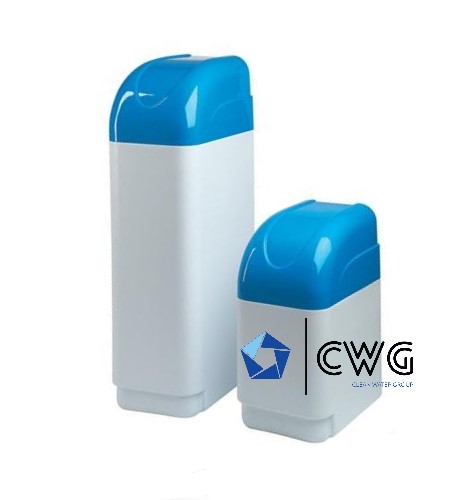HYDROGEN SULFIde H2S
Hydrogen sulfide (H2S) is a gas compound of sulfur and hydrogen that can occur in water. Its presence can be the result of natural processes, but also anthropogenic activities such as industrial processing and pollution.
Hydrogen sulfide has a characteristic smell of egg rot and has toxic properties.
How hydrogen sulfide in water occurs:
Hydrogen sulfide can appear in water from various sources:
– Anaerobic decomposition of organic matter: In natural environments like wetlands, silt and sediment, anaerobic bacteria can break down organic matter and release hydrogen sulfide as a by-product.
Industrial processes: Certain industrial processes such as oil processing, paper production, food industry, etc. They can release hydrogen sulfide as a by-product.
– Bacterial activity in plumbing systems: Bacterial activity in water pipelines and wastewater treatment systems can also produce hydrogen sulfide.
Manifestation of hydrogen sulfide in water:
Hydrogen sulfide manifests itself through the characteristic smell of egg rot. If you notice this smell in the water, it may indicate the presence of hydrogen sulfide.
Problems caused by hydrogen sulfide in water:
Hydrogen sulfide can cause a number of problems for the environment and health,
- Bad taste and smell:
The characteristic smell of rotten eggs can be unpleasant and undesirable in drinking water, and can also negatively affect the bathing experience or recreation in the waters.
- Toxicity:
Hydrogen sulfide is toxic and high concentrations can cause health problems. Exposure to high concentrations of hydrogen sulfide can cause headaches, nausea, dizziness, eye and respiratory irritation, and even more serious symptoms such as loss of consciousness and respiratory failure.
- Corrosion:
Hydrogen sulfide can contribute to corrosion of metal surfaces in plumbing systems, piping, and equipment, which can lead to damage and leaks.
To solve the problem of hydrogen sulfide in water, it is important to determine the source and concentration and take appropriate measures.
Depending on the concentration, various water purification techniques can be applied, including aeration, chemical treatment and activated carbon purification.
Reducing hydrogen sulfide emissions from industrial processes and careful management of wastewater are also key to reducing the problems associated with this toxic gas in water.
Hydrogen sulfide (H2S) is a gaseous compound that can cause serious problems for human health if it is found in high concentrations in water or air. Exposure to hydrogen sulfide can have various negative effects on health:
- Respiratory symptoms: Inhaling hydrogen sulfide can cause respiratory irritation. People who are exposed to high concentrations of hydrogen sulfide may experience symptoms such as cough, shortness of breath, nose and throat irritation, and shortness of breath.
- Eye irritation: Contact of hydrogen sulfide with the eyes can cause irritation, redness, burning and tearing. People with sensitive eyes may experience increased discomfort.
- Headaches and dizziness: Inhaling hydrogen sulfide can cause headaches, dizziness and a feeling of nausea. Transient dizziness and disorientation are also possible symptoms.
- Nausea and vomiting: High concentrations of hydrogen sulfide can cause nausea, vomiting, and generally bad feeling.
- Loss of consciousness and fatal outcome: In extreme cases, exposure to very high concentrations of hydrogen sulfide can lead to loss of consciousness and even a lethal outcome. Hydrogen sulfide can act as a respiratory paralyzer at higher concentrations.
It is important to note that the severity of symptoms and effects of exposure to hydrogen sulfide depends on the concentration of gas, the duration of exposure and the sensitivity of the individual. In case of sudden appearance of the smell of egg rot or other suspicious odors in water or air, urgent action is recommended to avoid further exposure. Prolonged exposure to hydrogen sulfide can cause chronic health problems, so it is important to ensure safe working and living conditions in environments where there is a risk of the presence of this toxic gas.

